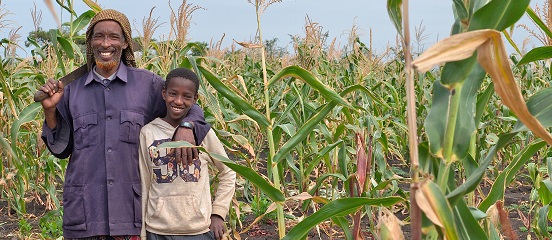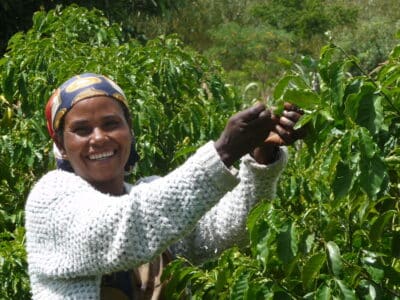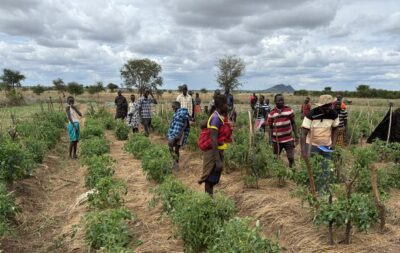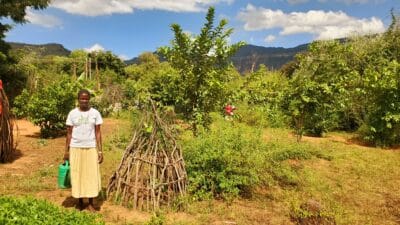Expert view
27 February 2017
How much do we value agriculture?

By Sam Viney, Communications & Advocacy Officer, Farm Africa
A new UK-focused report explores how agriculture is a bulwark of the economy, showing how agriculture’s deeply rooted contributions to the national economy span beyond the agricultural and food industry to stimulate other sectors and help address some of the grand problems of our age.
Brexit has forced the UK to ask important, often existential, questions about the future of the nation. The various sectors that make up the UK’s workforce are eager for clarity on which direction the country is heading in. Britain’s oldest industry is no exception: the National Farmers Union annual conference posed the question of what support should be given to British farming post-Brexit. The report from Development Economics has shed light on this question, highlighting the significant economic, environmental and social returns on investment in agriculture.
Assessing agriculture’s value
The research, which was commissioned by the NFU, revealed that every £1 invested in farm support delivers a £7.40 return for the UK economy. It adds to the growing body of evidence from across the globe that prioritising farming pays dividends across society.
To ascertain this figure, the study weighed agriculture’s total costs (government subsidies, greenhouse gas emissions and infrastructure costs for social and cultural services) against the combined benefits (contributions to the national economy, ensuring food security, farmers’ role in the stewardship of Britain’s natural environment and the socio-cultural worth of agriculture to the nation).
The study showcases agriculture’s value in cost-effectively tackling a wide range of pressing challenges ranging from economic growth to community empowerment through to environmental protection.
The global picture
The study gels with Farm Africa’s own experience of supporting and investing in farmers in Africa. We’ve seen time and again that where there has been rapid economic growth in Africa, such as in Ethiopia and Rwanda, there has also been rapid agricultural growth, particularly amongst smallholder farmers.
What’s more is that agricultural growth is the most effective way of boosting the livelihoods of the most vulnerable sections of society. Agricultural growth is 2.5 times more effective at boosting the spending power of the bottom 30% of earners in developing countries than growth in any other sector.
Custodians of the countryside
The study highlights how farming provides value for money, not only because it provides the food we need to feed ourselves and fuel our economy, but also because of the role farmers play in managing the countryside.
Agriculture accounts for 44% and 75% of all land use across sub-Saharan Africa and the UK respectively; making farmers in both locations the principal stewards of the environment. The hard reality facing both locations of feeding a growing population in an increasingly unpredictable climate makes this role even more important. Government and non-governmental organisations play a key role in supporting and directing these investments and ensuring that vital natural resources such as soil, water resources, forests and wildlife are sustainably managed.
A call to back farming
Sound investment in farming has the ability to address complicated intertwined challenges in a cost-effective and sustainable fashion.
As NFU President Meurig Raymond commented: “This report demonstrates well that money invested by government into UK farming is money invested wisely. Farmers are proud to produce food for a growing population, but also go above and beyond this, playing a huge role in contributing to the wealth and prosperity of the country.”
This is true not just of British agriculture. Across all societies, irrespective of wealth, culture and climate, farmers make a vital contribution to not just food security, but the economic, social and environmental wellbeing of the greater population. Decision-makers must take this into account when assessing farming communities’ worth.




